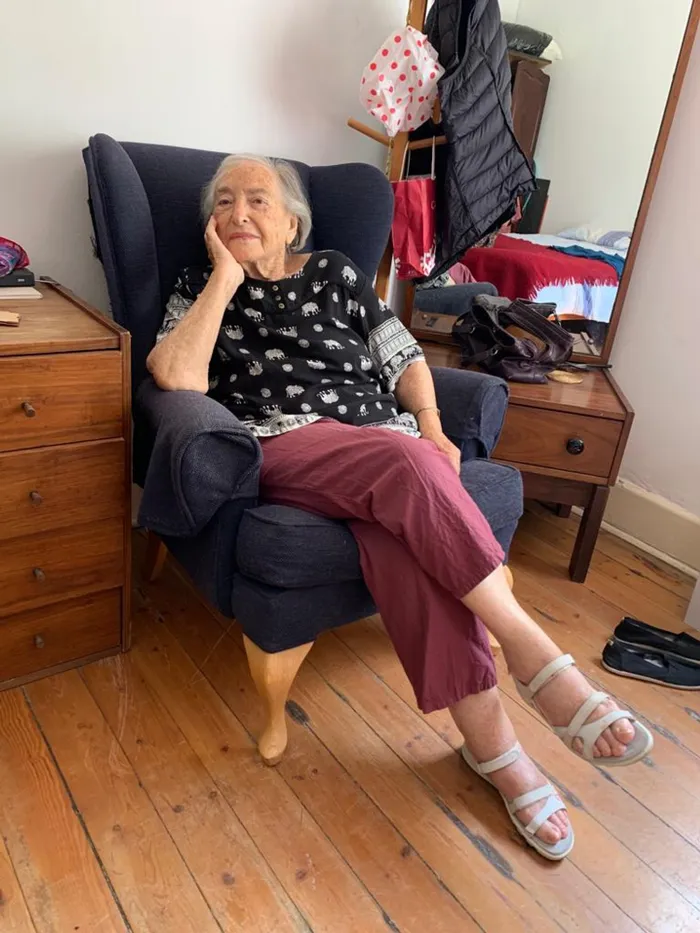Struggle activist fondly remembered

Amy Thornton
Veteran struggle activist Amy Thornton gave ordinary people a voice and lived a life dedicated to fighting injustice, say those who knew her.
Ms Thornton, a former Rondebosch resident and Cape Community Media (CCM) columnist, died on Wednesday September 6 at the age of 91. She was at her daughter Helena’s home in Woodstock where she had stayed for the past three years. She leaves behind four children and three grandchildren.
Ms Thornton was born in 1932 to parents who were actively involved in the struggle. It did not take long for her to follow suit, taking part in her first campaign against the National Party during the pivotal 1948 election when she was just 16.
In 1950 she joined the Modern Youth Society (MYS), a progressive youth movement involving mainly university students. Through MYS, Ms Thornton was involved in night school literacy classes for African workers in the Cape Town docks. In 1952 she was appointed as the secretary of the Joint Congress Committee and was part of the delegation that was stopped by the police in Beaufort West and detained over the weekend in 1955.
From the start of the Treason Trial in 1956 she served on the Treason Trial Support Committee. She did voluntary work for the Guardian newspaper - doing research and editorial work for the publication.
In 1959 she was banned for the first time initially for two years, but this was extended several times. She eventually served 14 years under banning orders and lost her job as a nursery school teacher.
From 1976 to 1983, Ms Thornton worked part-time for the Food and Canning Workers’ Union; was a founding member and deputy chairperson of the United Women’s Organisation; was appointed as a patron of the United Democratic Front and was among those detained during the two states of emergency.
Ms Thornton was also a member of the Cape Town ANC regional leadership and served on the National Coordinating Committee for the Return of Exiles between 1990 and 1993.
She was honoured in 2016 with the National Order of Luthuli for her excellent contribution and unflinching commitment to the struggle for liberation and equality for all South Africans, and her commendable bravery in the face of an oppressive regime.
Her grandchild, Drew Thornton, had been trying to capture her life stories on film over the past few years while on holiday in Cape Town from America, despite having no experience making documentaries.
“My last trip in January, I hired a film crew and we drove to her nursery school where she used to work to get some footage. At this point, her memory was very weak, but while driving there, I played her favourite artist, Paul Robeson, and she started singing every single word of Ol’ Man River and then told me about how his activism, which I knew nothing about, inspired her work in the community. I still get teary eyed thinking about it,” he said.
Mr Thornton said one of his favourite stories about his grandmother was how Archbishop Desmond Tutu had met her mother (his great grandmother) at a rally.
“My great gran was not very political at all but wanted to support my gran. The Archbishop, who was very famous at the time, went straight up to my great gran and said, ‘Thank you for your gift to our struggle.’ She then turned to my gran in awe and said she’s never washing her hand again.”
During the 90s, Ms Thornton wrote a popular advice column called Ask Amy for Cape Community Newspapers (now CCM).
Former deputy editor Mansoor Jaffer said that shortly after his appointment he had gone to ask Ms Thornton if she would be interested in writing an advice column for some of the newspapers in the group.
“Ask Amy quickly became the most popular column in our newspapers. Amy dealt with large volumes of requests for advice on matters ranging from pensions and housing to drug abuse, security and service delivery. There were even pleas to Amy to resolve marital issues and help some older men find wives,” he said.
Mr Jaffer said that during a visit to Ms Thorton shortly after she turned 90 she had spoken extensively about the period in which she had written the column and had described it as one of the most fulfilling times of her life.
Mr Jaffer said Ms Thornton’s life was dedicated to justice for all and any acts of injustice infuriated her. She believed deeply in a non-racial future based on equality and freedom and enriched the lives of all who knew her and even many who did not.
Mr Thornton said his grandmother had felt like she had made a real difference with her column.
“In her typical humour, my gran said it’s the first time she felt like she had any true power. Giving those in the community a voice and an equal footing was what inspired her to keep working 18 years into her retirement.”
He said his grandmother’s charm, pure soul and dedication had kept an amazing network of family, friends and colleagues close to her for decades, and they had often met for tea regularly into her 90s
President Cyril Ramaphosa expressed his condolences at the death of Ms Thornton, saying: “Amy Thornton lived a life of principled resistance, bravery and perseverance so that we could live in freedom today. She was one of many white South Africans who sustained the non-racial character of the liberation struggle. She served our nation with great courage and tireless energy.”
Ms Thornton was due to be laid to rest on Wednesday September 13, at the Temple Israel Wynberg Synagogue.